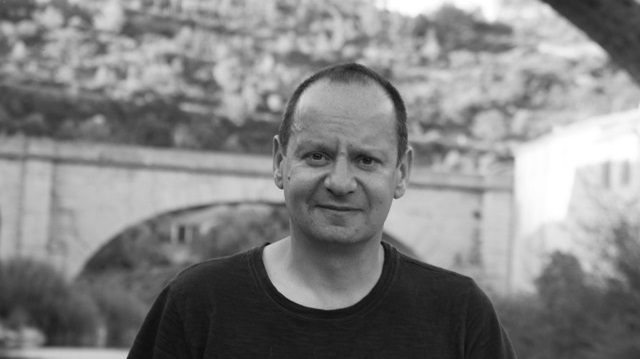This resource is great for:
Starting to think, talk and write about human rights.
Summary:
Watch an interview with leading UK barrister Philippe Sands QC and then start a discussion about some of the issues raised – including freedom of expression and crimes against humanity.
Introduction:
Before his event at the 2016 Edinburgh International Book Festival, young reporter Anna Cooper took the opportunity to ask International Human Rights Lawyer Philippe Sands QC some questions of her own. The result is a fascinating and motivational interview. Watch the video below and then use our discussion points as prompts for your own class conversations.
Activity – Discussion Points
- At 1 minute 50 seconds – Philippe explains the difference between genocide and crimes against humanity:
To prove a crime against humanity, you have to show that a large number of people have been killed unlawfully and systematically. To prove a genocide, you have to show the same thing, but additionally you have to prove that the acts of killing were motivated by the intent to destroy that group, and that’s a very difficult thing to prove.
Listen to his explanation and from your own knowledge or research, give some examples of both. Discuss your examples with your group. Do they agree?
- At 3 minutes 20 seconds – Philippe discusses stories which inspire him, including the remarkable story of Miss Tilney, who saved his parents and a large number of others, during the Second World War:
The kinds of stories that inspire me are stories about people who, in the face of tremendous pressures to confirm in wrongdoing, act independently and fearlessly in doing the right thing. You might call it expressions of civil courage.
You can read an interview with Philippe, which goes into further details of Elsie Tilsney’s story here: http://www.thebookseller.com/profile/philippe-sands-interview-329800.
Think about what people have inspired you. They might be people you know, people in your community, or stories of people that you’ve heard elsewhere. Write a short piece of creative writing telling the story of someone who inspires you, and why they do.
- At 6 minutes 9 seconds – Philippe talks about normality existing alongside horrors such as terror attacks and refugee crises:
You can’t spend every single day worrying about the horrors that are taking place around us or further away. You have lives and those lives have to be lived in all of their aspects the good and the bad, the difficult and the not-so difficult. So I think it’s normal that life goes on but I’m sure you and many of your friends and your colleagues and your generation will put a lot of effort into these things that we’re talking about. You’ll go out on a Saturday night and go to a party because that is your right to do that as a young person. And then on Tuesday you may go on a march about something that’s happening in Syria, and that’s right that you should have that balance.
Think about a current affair issue which concerns you. Do you feel inspired to, or have you, taken any action relating to it? Some examples would be:
– Writing a letter to a politician
– Volunteering at a local refugee centre
– Going to a protest march
– Talking with a friend or family member about the issue
– Write and perform or record a protest song
Decide on an action and take part in it!
- At 8 minutes 28 seconds – Philippe is asked about social media, and whether it helps or hinders human rights:
It’s helped human rights in the sense that it makes it much easier for us to know what is going on in far away places… events in 2011 as Gaddafi was being overthrown and turning his guns on his own people was recorded by people on their mobile phones… and we learned what was happening and that helps with human rights. On the other hand, we also know that social media, Twitter and Facebook, is used to galvanise forces of darkness, is used to recruit, is used to campaign.
What do you think? Talk in a group about any examples you might have seen or heard about where social media was used positively or negatively in relation to human rights.
Philippe brings up the topic of freedom of expression and whether limits should be put on the use of social media. Use this as a starting point to discuss freedom of speech. What outcomes might there be if limits were put on Facebook in terms of users or content? How would this be regulated? What would the benefits or dangers be?
- At 9 minutes 45 seconds – Anna questions how she can get involved in international human rights, which can sometimes feel remote. Philippe’s answer is an inspiring, motivational call to action for each of us:
Individual choices really matter. You can make a real difference… Each and every one of you can make a real difference.
Are the examples Philippe uses issues which have previously concerned you? Has this interview and Philippe’s comments changed your view on human rights and how they affect you? If so, how might this now change your actions or outlook?
Further information:
Philippe Sands delivered the Frederick Hood Memorial lecture at the 2016 Edinburgh International Book Festival. The full recording of the event can be found on the Book Festival website: https://www.edbookfest.co.uk/media-gallery/item/phillipe-sands-2016-event
